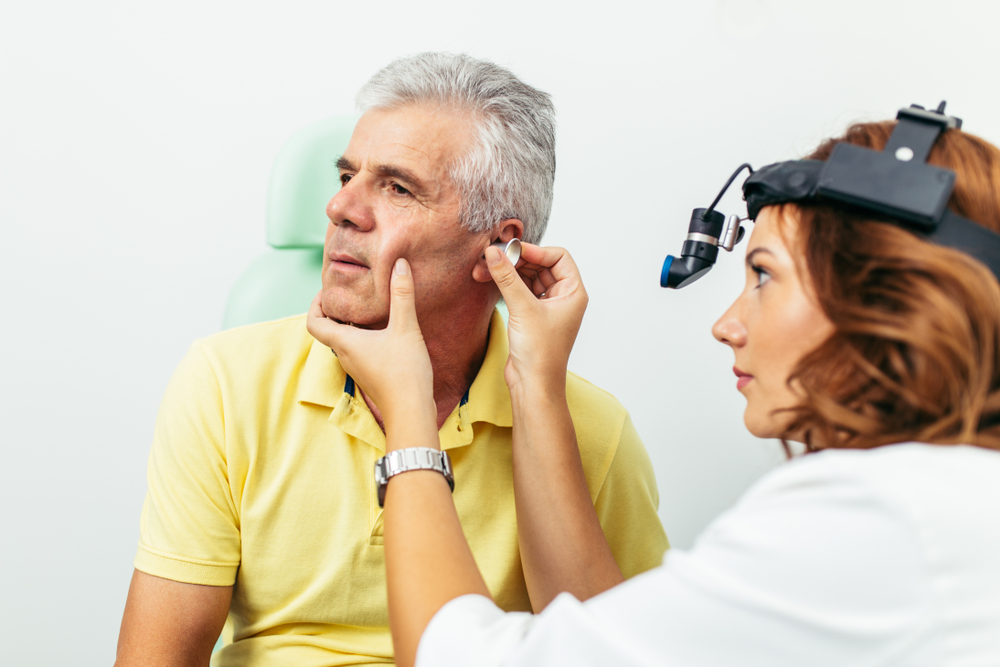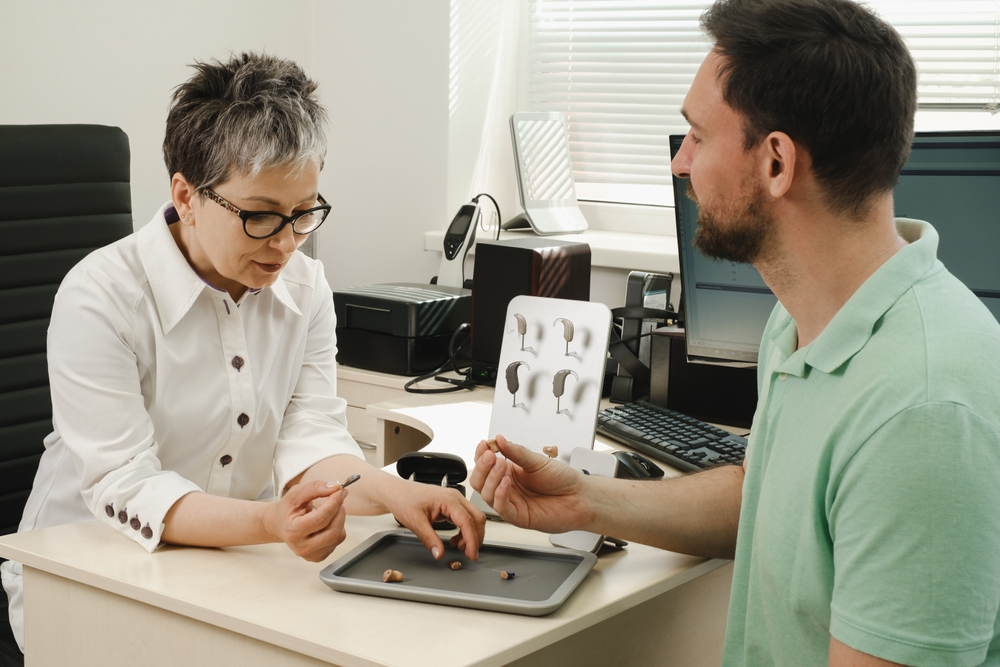Hearing aids are an investment you expect to last for years. These devices play a crucial role in maintaining connections with friends, loved ones, and the activities that bring you joy. Making an informed decision is key; you aim to choose the hearing aid that perfectly suits your needs.
While you may have encountered stories of individuals struggling with subpar hearing products, the question remains: how do you go about selecting the hearing aid that caters to your specific level of hearing loss?
How do hearing aids work?
Hearing aids work by collecting sounds from your environment, and then amplify the sounds you want to hear while minimizing background noise to maximize your hearing experience.
Most modern hearing aids are digital and powered by button batteries.
What to look for when choosing right hearing device
Consider the following guidance when you’re looking to purchase a hearing aid.
Make sure it’s an FDA-approved medical device
A hearing aid is a medical device that can only be prescribed by a hearing specialist. To be called a medical device, it must meet strict standards set by the U.S. Food and Drug Administration (FDA).
FDA cleared is not the same as FDA approved. FDA cleared means that the FDA believes the device doesn’t pose serious risks to consumers. FDA approved requires that the device be clinically proven to treat a specific condition.
Over-the-counter hearing devices, such as PSAPs (personal sound amplifiers), are not technically hearing aids. They don’t function the same way hearing aids do. They’re not intended for people who have moderate to severe hearing loss. The FDA calls them recreational devices because they’re not proven to treat hearing loss.
Make sure you feel comfortable wearing it
Approximately 30% of people don’t purchase a hearing aid or don’t wear one because they don’t feel comfortable wearing it. They don’t like how it looks or feels, or it makes them self-conscious.
Untreated hearing loss can lead to depression, anxiety, dementia, increased risk of falls, and rapid hearing loss progression. If you are suffering from hearing loss, it’s crucial you wear your hearing aid to prevent these issues.
The more comfortable you are with how your hearing aid looks and feels, the more likely you are to wear it. That’s important to your health and happiness.
Today’s hearing aid designs are more comfortable and discreet. You’ll want to wear your hearing aid once you hear how much better the world sounds.
Make sure it amplifies sound precisely
A tiny microphone in the hearing aid receives sound and converts it into a digital code. This code is programmed by your hearing specialist, and the sound levels are adjusted to precisely the volume you need for the best possible listening experience.
Hearing specialists perform the adjustments based on the comprehensive hearing evaluation you received after you took your hearing test.
For example, if you’ve lost 40 decibels of your hearing, the aid will amplify sounds by 40 decibels, so they are perceived at normal volume when they reach the inner ear.
By contrast, over-the-counter devices aren’t designed to meet your unique hearing needs.
Make sure it can adapt frequencies
Inside your ears, you have tiny hairs that pick up sounds in the inner ear and vibrate with those sounds. These vibrations are communicated to the brain. As you age and are exposed to damaging sounds, these hair cells die. Once they’re dead, they don’t grow back.
Different hair cells are responsive to different sound frequencies, or pitch. As you lose your hearing, you tend to lose the hair cells that pick up high frequencies first.
Once you lose all the hair cells that pick up a specific frequency, you no longer hear that particular frequency. This creates gaps in conversation that sound like mumbling to you. That’s because as people speak, they raise and lower the frequency of their voices to add inflection.
Amplifying these sounds won’t do any good. With hearing loss, you can’t pick up some of those frequencies, regardless of volume. You may have more trouble with children’s and women’s voices, which tend to be higher.
Modern hearing aids are designed to change the frequency of sounds you can’t hear to frequencies you can. During your hearing test, your hearing specialist will determine which frequencies you’re “missing” to get you fitted with the device that gives you the best listening experience.
In contrast, over-the-counter devices only make sounds louder. Volume isn’t the problem if you have lost certain frequencies in your range of hearing.
Don’t wait to seek help for hearing loss
Untreated hearing loss can greatly affect your health and quality of life. Don’t wait to seek help to find the right hearing aid for you. Contact a hearing specialist near you today.



